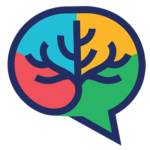The treatment of APD must be highly individualized and deficit-specific. Our speech therapists at Rock Therapeutic Services have knowledge and experience in CAPDOTS and Fast ForWord software programs.
What is Auditory Processing Disorder?
Auditory Processing Disorder (APD) refers to how the central nervous system (CNS) uses auditory information. Children with APD may exhibit a variety of listening complaints. For example, they may have difficulty understanding speech in noisy environments, following directions, or telling the difference between similar-sounding speech sounds.
In the school setting, children with APD may have a more challenging time spelling, reading, and understanding course material presented verbally in the classroom. However, it is vital to remember that not all language learning problems are due to APD. All cases of APD do not lead to language and learning problems.


CAPDOTS vs Fast ForWord
CAPDOTS is an online auditory training system for Central Auditory Processing Disorders (CAPD). It provides evidence-based, deficit-specific intervention using current audiological science. CAPDOTS™ is a complete therapy system that comprises modules that can be selected to meet the specific needs of the individual with CAPD.
CAPDOTS™ is a convenient, readily-available therapy program that allows audiologists and speech-language pathologists to provide their clients with formal, structured off-site auditory training. The web-based design allows for a rigorous therapy program without taxing the clinician’s or client’s financial or time resources. Therapy progress can be easily monitored daily, at the clinician’s convenience, through the website.
Fast ForWord is an evidence-based, adaptive reading and language program that delivers 1-2 years of learning in 40-60 hours of use for any struggling learner. Fast ForWord uses a unique brain-based approach that targets the root causes of difficulty reading to deliver lasting results.
Different learner types and intervention levels have different needs. Fast ForWord offers diverse programs for children with dyslexia, struggling readers, or English language learners.
Common Questions & Helpful FAQs
What is the difference between Auditory Processing Disorder (APD) and Central Auditory Processing Disorder (CAPD)?
APD and CAPD are used interchangeably to describe the same entity. In a broad sense, Auditory Processing Disorder (APD) refers to how the central nervous system (CNS) uses auditory information. Children with APD may exhibit a variety of listening complaints.
What are the indicators of APD?
Children with auditory processing disorders may demonstrate difficulties in:
- Directing or dividing attention
- Hearing in noisy, social environments
- Recognize and integrate a sequence of sounds into words or other combinations
- Understand instructions
- Follow long conversations
- Follow multi-step directions
- Take written notes from a speech
- Learn songs or rhymes
Since these indicators overlap with other disorders, it is important to take a multidisciplinary approach to diagnose your child with APD. No matter how many symptoms of APD a child may have, only careful and accurate diagnostics can determine the underlying cause.
What ages can be tested for APD?
Audiologists at the American Speech-Language-Hearing Association recommend that individuals younger than seven should not be tested for APD. Additionally, young children often cannot attend to the tasks required for the APD assessments. Many tests of APD are repetitive, and keeping strict attention throughout the entire test battery can be exhausting.
Is auditory processing disorder (APD) the same as being hard of hearing?
They are not the same! APD and hearing loss can be identified early in life and have treatable conditions, but the indicators differ between the two. Children with hearing loss may not react to loud sounds, are unable to detect where a sound is coming from, or have delayed speech development. Children with APD have functional ears. They cannot attribute meaning, interpretation, analysis, or organization to the sounds they hear.
Treatment for both hearing loss and APD is impossible without a proper diagnosis. After speaking with your pediatrician, they may recommend your child receive a hearing test and see an audiologist.
What treatments are available for auditory processing disorder?
It is essential to understand that there is not one tried and true method for treating APD. Not all APD methods will work for each child. The treatment of APD must be highly individualized and deficit-specific. It is recommended that an accurate and careful diagnosis is completed by an audiologist, who will direct you to the appropriate course of action.
Treatment of APD focuses on three primary areas:
- Changing the learning or communication environment.
- Recruiting higher-order skills to compensate for APD.
- Remediation of the auditory deficit itself.
Treatment of APD is highly individualized. There is no one treatment approach that is appropriate for all children with APD.





